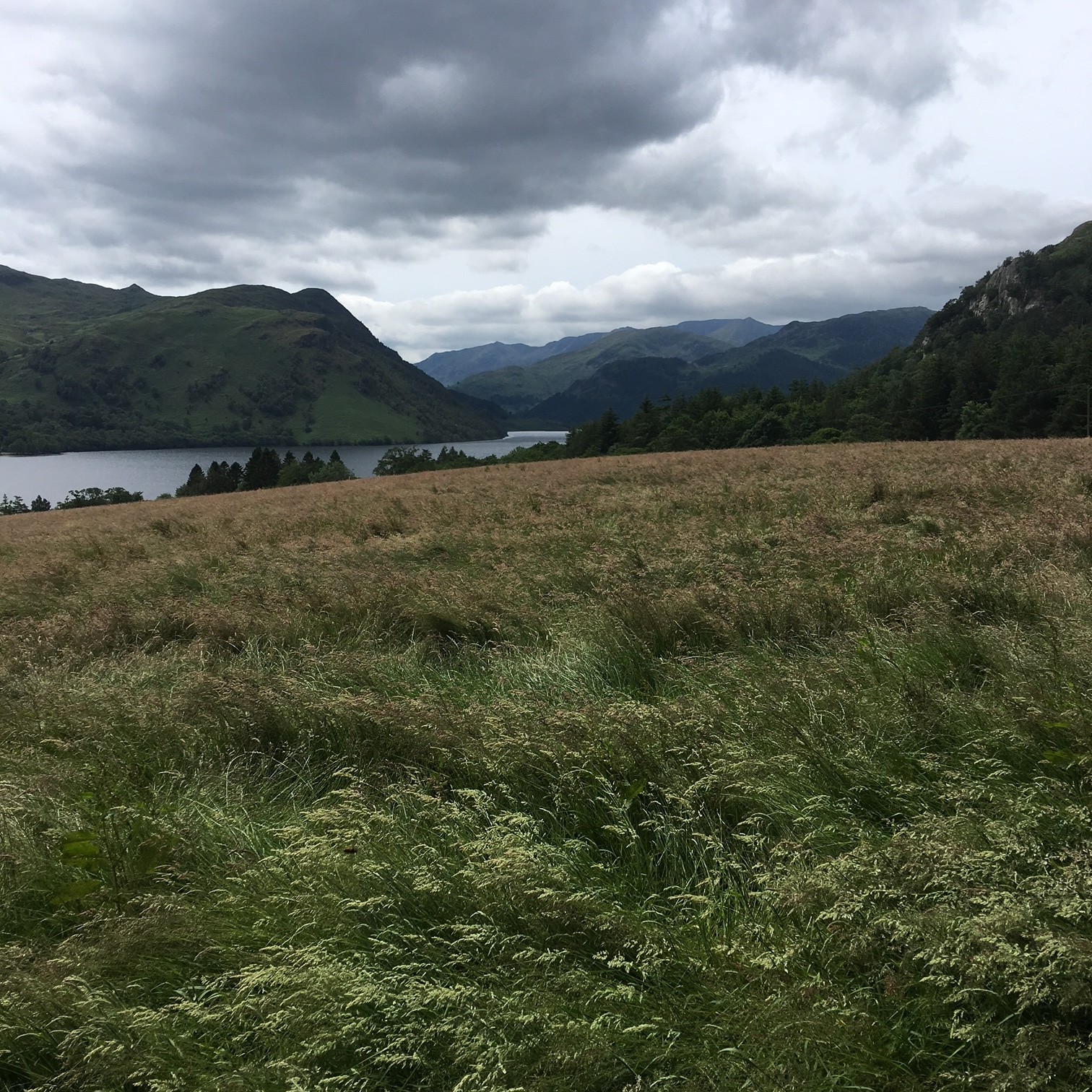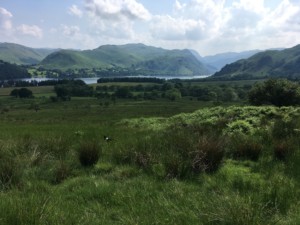
- This event has passed.

Wilder Gowbarrow Guided Walk – Free
September 18, 2019 @ 10:00 am - 11:30 am
FreeWilder Gowbarrow Project Guided Walk. 18th September.
1-2 Hours. The walk will be on rough terrain but will not be strenuous. Please wear sensible shoes or wellingtons and bring a waterproof coat.
Meeting point . Grid Reference NY 42508 20700 In lay-by on the side of Ullswater Lake approximately half way between the landing stage at Aira point and Gowbarrow bay. The map shows the Farm House not the meeting point.
We invite you to come and find out more about an exciting project centered around a Lake District family farm on the South facing shores of Ullswater.
Gowbarrow Hall Farm has a rich landscape history and includes fell land, ancient wood pasture, woodland and upland hay meadows and currently supports a flock of Swaledale sheep and Shorthorn cattle.
Project led by Caroline Grindrod, Wilderculture C.I.C, will be working with the family at Gowbarrow Hall Farm to use a ‘Wilderculture approach’ for managing the land.
Wilderculture is a hybrid of ‘rewilding’ and regenerative farming – applied using the Holistic Management framework – that restores nature and landscape function, but just as importantly, contributes significantly to sustainable nutrition security and farm profitability by producing high quality 100% grass fed meats and game.
This is a rare opportunity to demonstrate the role of herbivores, including properly managed livestock, in ecological restoration projects. Due to the success of projects such as Knepp Estate and the research of Dr Frans Vera we better understand that wild herbivores play a critical ecological role in the restoration and maintenance of our truly native habitats.
The work of Allan Savory (Holistic Management) and other regenerative farming leaders has advanced the study of the role of herbivores helping us understand that the behaviour, not just the presence of these ungulate grazers influences how effectively they benefit an ecosystem. Livestock managed to mimic these behaviours can be an important tool in the absence of wild herds and their predators.
The impressive results regenerative farming is achieving in terms of improved ecosystem services such as climate cooling, flood and drought mitigation, improved farm productivity and increased biodiversity are well documented worldwide but relatively new to the UK and particularly in the uplands.

Our forgiving moist climate has led to us being the last to recognise the symptoms of soil degradation – an issue that is now being highlighted following the Minister of Environment’s announcement last year that the UK has only 30-40 years of fertility left in its soils. The symptoms of soil degradation in the form of loss of farm productivity, increased drought and flood events are now being recognised by environmentalists and land managers throughout Britain.
In the UK uplands there has been a significant loss of biodiversity and a call from some to reduce or remove livestock – especially sheep – and instead adopt rewilding on these less productive areas. However, in the green and pleasant UK, environmentalists must be careful not to forget that the UK is part of the larger global ecosystem and what impacts the world will influence the long-term future of UK land. Major factors that are influencing world agriculture are;
- Global agricultural land is rapidly diminishing, increasing the reliance on moister climates to sustain a hungry global population.
- Globally we are losing 10 tons of soil for every ton of food produced with the FAO stating we have less than 60 global harvests left.
- Over 75% of the Earth’s land area is already degraded, and over 90% could become degraded by 2050.
- Globally, a total area half of the size of the European Union (4.18 million km²) is degraded annually, with Africa and Asia being the most affected.
Any large scale moves to remove upland areas from food production could have serious repercussions in the future for humanity as a whole.
Although the uplands are marginal in agricultural terms producing a small volume of calories and protein when compared to arable crops, the nutrient density of the meat produced is higher than any other food – a hugely important factor in creating truly sustainable nutrition security.

As we see intensification of food production on our depleted arable land and a shift in diets towards nutrient poor grain-based food, ensuring we have a sustainable supply of nutrient rich healthy foods from land that is unsuitable for plant food production is essential.
How we graze and manage livestock however cannot continue as ‘business as usual’ with further soil and biodiversity loss. Regenerative farming has an impressive record for turning degraded land into healthy ecosystems that can also produce food over millions of acres globally, but so far there has been no trials of how this could be applied in the UK uplands at scale which is why the Gowbarrow project is an exciting opportunity.
In the spirit of fostering learning we are regularly ‘opening the gates’ to anyone who is interested in what we are doing. This guided walk is one of these opportunities. Access to the farm is by arrangement only.
The hour long walk will outline the nature of the project and allow you to look at our grazing regime and livestock whilst enjoying the nature and spectacular backdrop of the farm.
We hope you’ll join us.

